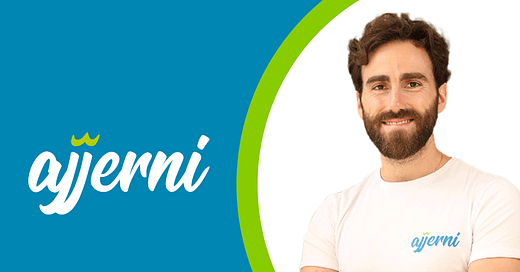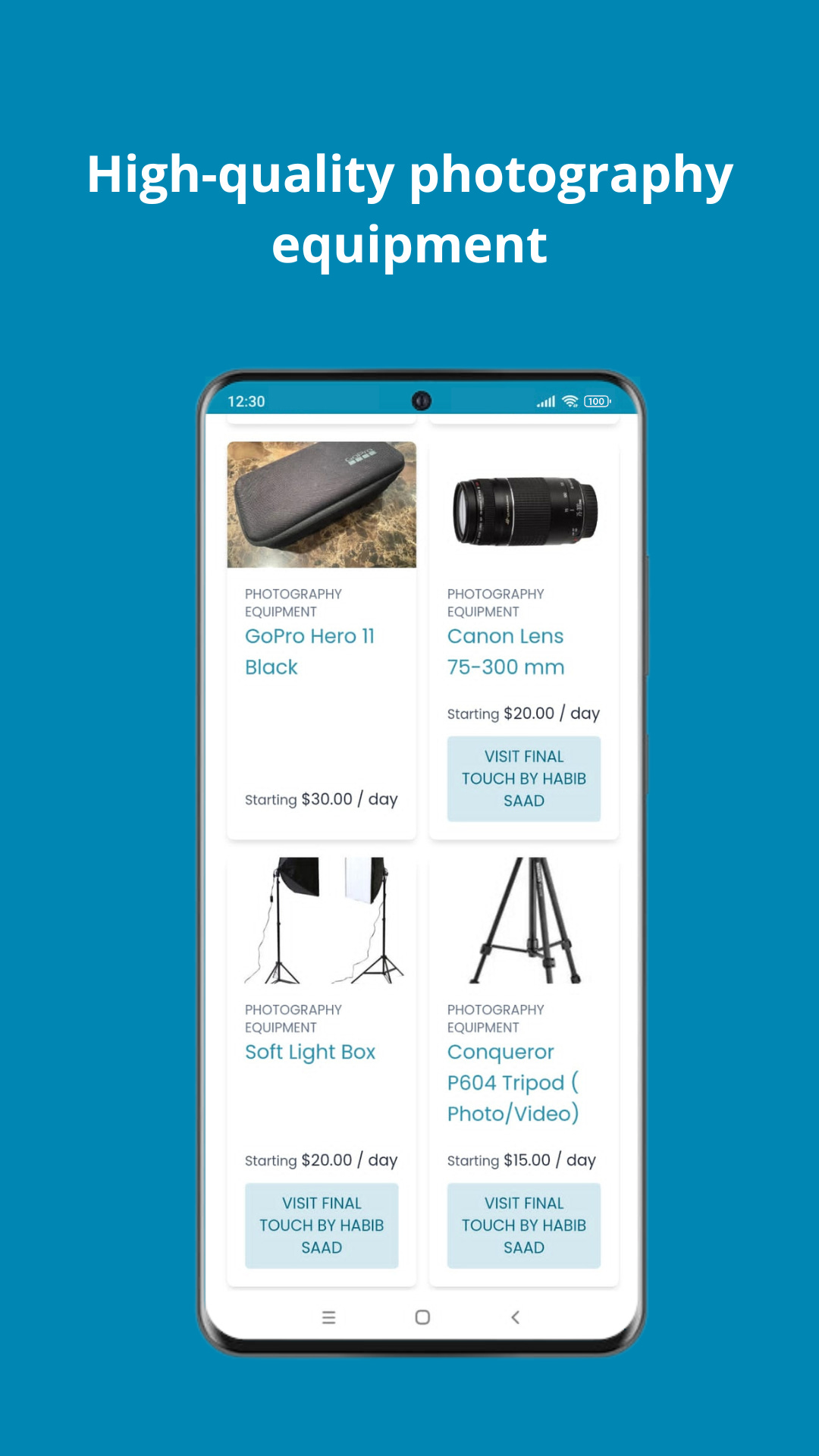Summer is a busy time for Ajjerni. As the holiday season gets underway, the Lebanese startup is flooded with requests to borrow equipment via its online rental market, with party equipment, camping gear and electronics in high demand.
Samer Corban, 34, first had the idea to create a peer-to-peer rental space during the 2019 uprisings, in the early days of the country’s ongoing financial crisis. “I have a lot of friends in the artistic community, and many photographers were struggling to find the equipment they needed,” he recalls.
Corban tested the idea of an online rental space for camera equipment, which almost worked until the insurance companies he had lined up pulled out. At that time, the economic crisis was deepening as the value of the Lebanese pound plummeted. “Insurers were unwilling to take on a new product in that climate,” he says.
Corban and his business partners, Bassem Makarem and Mansour Habchi, had a choice: give up on Ajjerni or expand to cover more categories and fight to keep the idea afloat. They chose the latter, and their startup took off. “Before 2019, Lebanon had a throwaway culture, but people got a big shock when they lost their life savings; it forced a new way of doing things,” he says.
In this new climate of caution, fewer Lebanese are inclined to make large purchases of expensive goods, which is why Ajjerni offers the ideal solution. “The financial crisis has led to a lot of behavior changes that are going to last a while,” Corban adds.
The concept is straightforward. Ajjerni, which means ‘rent to me’ in Arabic, allows private individuals and rental companies to post and browse products they are willing to rent or hire. The app takes a 10-15 percent commission from companies and a slightly higher amount from individuals to cover the additional costs of insurance.
Photographs are taken to confirm the condition of the item before and after the borrowing period, with users required to go through a verification process to confirm their identity.
Feedback has been overwhelmingly positive and by 2020, the business was growing rapidly. Then, in August of that year, another catastrophe shook the country when an explosion at The Port of Beirut killed 218 people and damaged part of the city. Corban’s home was in the blast zone, and after the upheaval of recent years, he decided to go abroad. “I went to work at a tech start-up in Paris for a few years and put Ajjerni on hold,” he says.
But even without anyone working to expand the business, Ajjerni continued to grow. So, when Corban returned in 2022, he decided to try again and applied for funding with the California-based venture capital firm 500 Global. The accelerator, which has its regional headquarters in Saudi Arabia, has a low acceptance rate, but Ajjerni managed to secure US $100,000 to support its growth.
In September last year, they began raising another round of financing to expand into other regional markets. Then, on October 7, Hamas attacked Israel, and the conflict heated up on Lebanon’s southern border. Ajjerni’s investors pulled out, and it looked like the company would collapse. “Every door seemed to be closing. We had to let a lot of staff go,” Corban says.
Then Corban managed to secure an Innovation Hub grant from Ideas Beyond Borders, providing enough funding to keep the startup going. “It was a lifeline that came at just the right time,” he says.
Now business is picking up, and the summer rental rush is gathering pace. Like everyone in Lebanon, Corban watches the geopolitical situation closely as the threat of war looms over their lives. “It’s frustrating because every time things start to pick up, there’s another setback that takes us back to square one,” he says. But despite the difficult climate, he plans to carry on. “People love the Ajjerni concept, there’s a lot of demand for it and that gives us hope.”
This article was written by Olivia Cuthbert.





